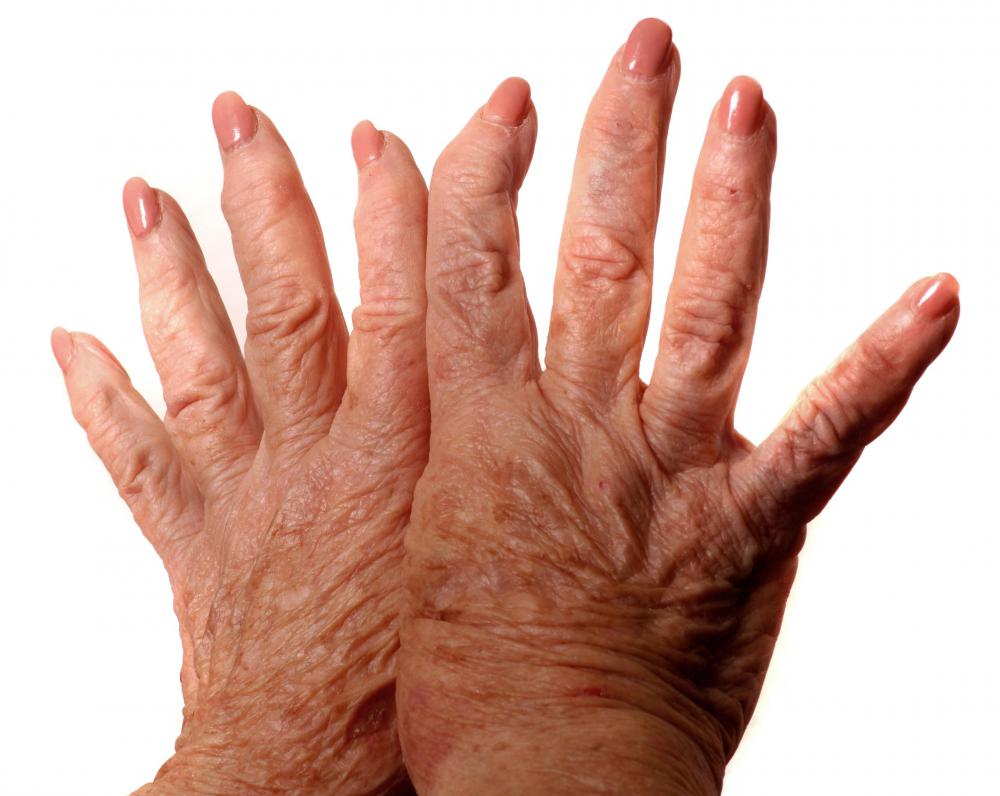At TheHealthBoard, we're committed to delivering accurate, trustworthy information. Our expert-authored content is rigorously fact-checked and sourced from credible authorities. Discover how we uphold the highest standards in providing you with reliable knowledge.
Is Lupus a Genetic Disease?
Lupus is a systemic autoimmune disease that has some genetic factors. It is also tied to environmental risk, which may determine whether people actually ever manifest the illness. These environmental factors may also play a role in the degree to which lupus may affect a person’s life and mortality. Thus while some people may have a genetic predisposition for the disease, not all those with genetic factors will get it.
People of African descent are more likely to develop lupus, and it affects three to four times more African-Americans than Caucasians in the US. It is also more common among people of Asian and Hispanic descent. This factor alone suggests genetic origins of the disease, especially when relatively small groups of people seem to manifest it on a more regular basis.

A 1997 study by the National Institute of Health evaluated a form of lupus that causes a high rate of morbidity due to deterioration of the kidneys. The research group examined was a population of African Americans. One specific gene was found to be most indicative in determining lupus involving the kidneys, also called lupus nephritis. In almost all cases of those studied with the condition, a specific gene was shown to be a weaker version than that present in the participants who did not have lupus.
Some of those who did not have lupus nephritis also had the weaker gene. This finding suggests that genetics are only a partial factor in determining who will get the disease. Environmental conditions may have some effect as well.

Certain types of lupus do tend to occur more frequently in families. This is particularly the case among female siblings. Yet even with extensive studies, scientists cannot positively conclude that the condition is “genetic” and that a person will get lupus if others in their family have it. However, a 2002 study published in The Annals of Rheumatic Disease concludes that genetics play at least some part in development of the disease.

Since not all people with genetic predisposition for lupus contract the condition, it is important to evaluate what environmental factors are indicated in disease prevention. While a few genes have been studied as factors for lupus, more may be involved that have not been identified. Researchers often find that there can be several genes responsible for a single condition. Those genes may also help determine to what degree environment and genetics are factors in developing lupus.
AS FEATURED ON:
AS FEATURED ON:















Discussion Comments
My family is also from the South and we are all white (as far as I know) with a small amount of Native American. My niece has lupus and two out of three of her daughters also have lupus. That would strongly suggest genetics plays a part of having it.
I'm from the south too and my mom has lupus and I'm afraid I might get it when I'm older or it will like start up when I'm 20 or something.
Its funny that they say it's an African disease because my children and grandchildren are as white as white can be and they had neonatal lupus. Does that mean there is African in us?
joefriday, what book is this you are talking about? share with the world!
Lupus is not a fully understood condition, like fibromyalgia, in that doctors are not entirely sure how patients contract it. They can’t tell if it’s fully genetic or a combination or genetic and environmental factors. I have fibromyalgia and have an aunt and 2nd cousin who have lupus. I’ve been tested for lupus and the results have been negative, but the symptoms of both conditions are so similar. I was wondering if anyone knows what ‘environmental factors’ could contribute to causing lupus? I live in the Southern states and from what this article says, I could be at a greater risk because of my heritage.
I was a long time sufferer from Lupus for many years until I found this great little book that helped me cure my symptoms completely. It's a great book and I'm so glad I followed it. It saved my life.
Post your comments